
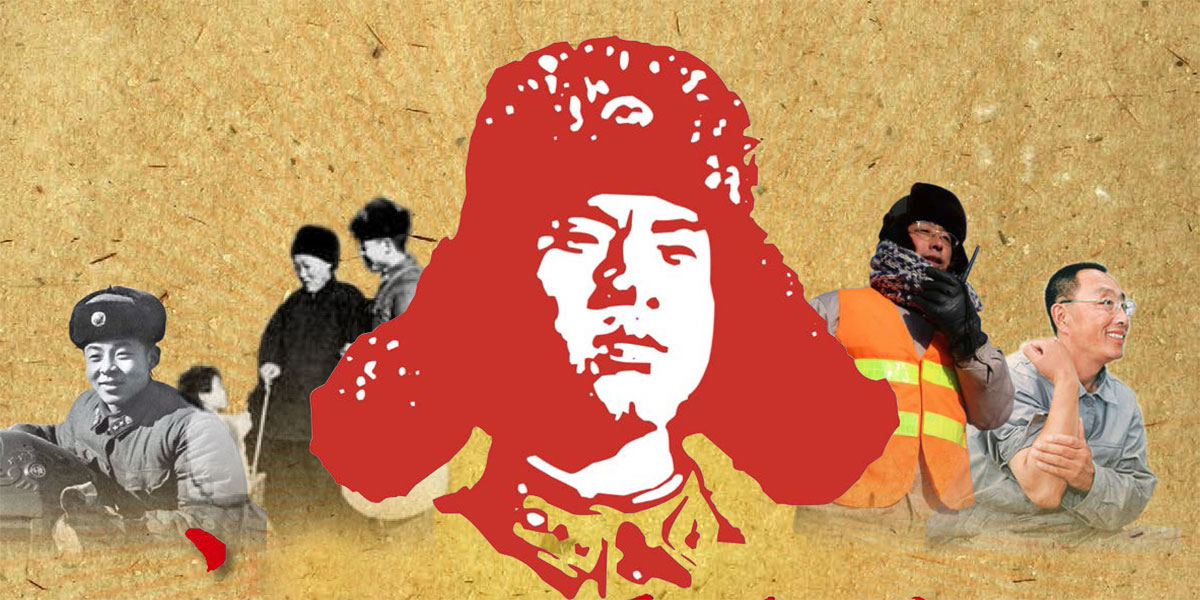
Guo Mingyi and Lei Feng: Bringing you happiness through my good deeds
Guo Mingyi, a seemingly ordinary chinese man has supported the schooling of more than 180 impoverished students with his modest income. He also initiated a “caring group” that has motivated thousands of people to engage in charitable deeds, earning him the titles “A Good Man in China” and the “Successor to Lei Feng” in the contemporary era.
At the launch and copyright signing ceremony of the paper and audio-video book titled A Good Man in China for Chinese language teaching that took place on the first day of the London Book Fair, which opened on April 16, the stories of Guo Mingyi, a good man, touched everyone present.
Professor Michael Hoey, Pro Vice-Chancellor for Internationalisation and Dean of Confucius Institute, University of Liverpool, remarked earnestly: “Guo Mingyi is a moral model. I hope to become a person like him myself, and I also expect my students to utilize this book to learn not only the Chinese language, but also his good deeds.”
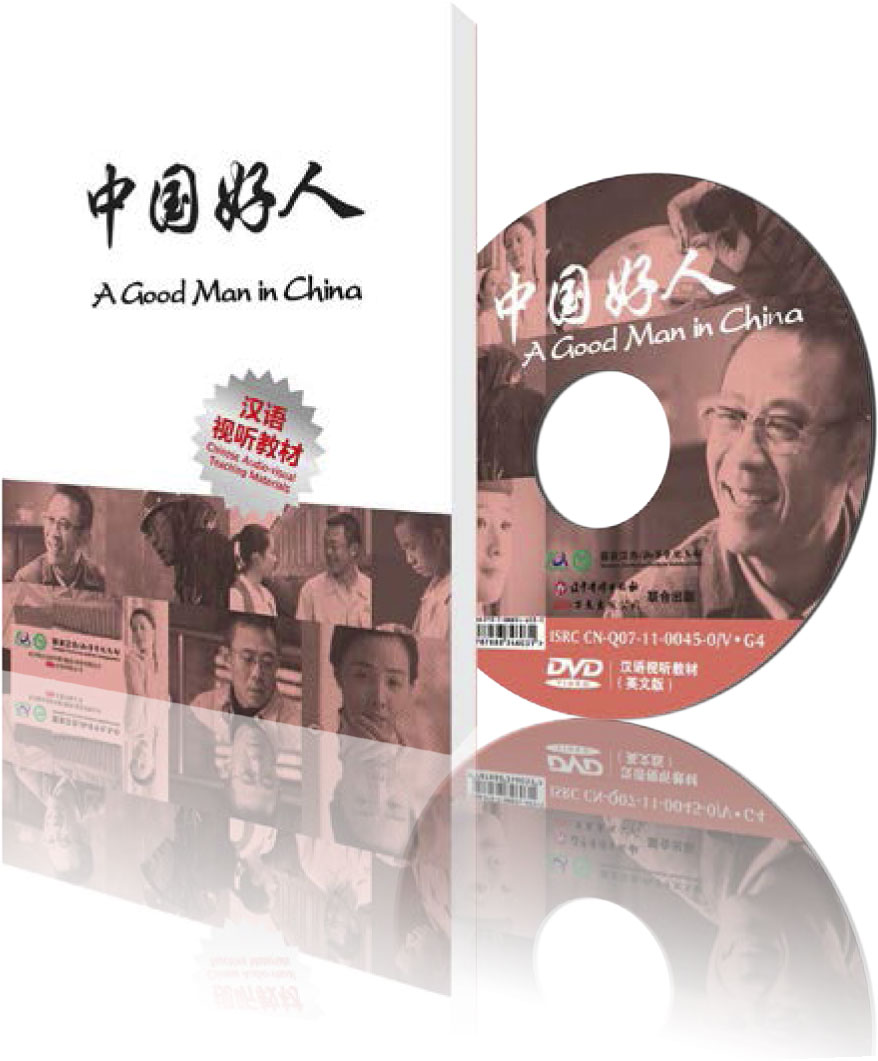
widely welcomed by foreign friends.
This “good man in China”, who was highly commended by Professor Michael Hoey, is a household name in his motherland. As an ordinary administrator working at the quarry highway of the Anshan Iron and Steel Group Corporation (“Ansteel”), he was granted on March 2 this year the title “Contemporary Lei Feng” by the Chinese government, the ultimate recognition of one’s morality. March also marks the annual “Learning from Comrade Lei Feng” month for Chinese people across the country.
STORIES OF AN ORDINARY “GOOD MAN IN CHINA”
Like all manual laborers, Guo Mingyi has sun-tanned skin and coarse palms due to hard labor, and always wears a piece of simple, grey uniform, and displays bright and honest smiles. However, this seemingly ordinary man from northern China has, over the past two decades, donated 60,000 milliliters of blood and supported the schooling of more than 180 impoverished students with his modest income. He also initiated a “caring group” that has motivated thousands of people to engage in charitable deeds, earning him the titles “A Good Man in China” and the “Successor to Lei Feng” in the contemporary era.
No one would hesitate to hold up their thumbs whenever his name is mentioned. After learning that the daughter of his colleague Zhang Guo-bin was diagnosed with leukemia in 2006, Guo Mingyi rushed to the hospital to see the child and left 200 yuan as support. Knowing that the child could be saved as long as matching hematopoietic stem cells were available, he called on all the offices and more than 70 shifts at the mine, and went to the city’s traffic information broadcasting station to help search for the cells in the entire city of Anshan. Inspired by his relentless efforts, more than 1,300 people, among whom he was one of the earliest donors, donated hematopoietic stem cells. Eventually and fortunately, the proper match for Zhang Guobin’s daughter was found.

Apart from being ever-helpful, he also takes his work very seriously. He set the annual single-truck output record when working as a truck driver of Ansteel; and was the first to obtain a qualification certificate when serving as a workshop statistician. When the company faced a critical shortage of English-speaking talents in 1992, Guo Mingyi, who couldn’t tell A from B before, was admitted to an English crash course through self-learning, and was commended by foreign experts for his performance when he acted as an English interpreter plus driver at the assembling site of big-size and motor-driven ore transportation trucks one year later. During the 16 years when he worked as a highway administrator for the mine, he worked overtime for 15,000 hours totally, which is equivalent to 5 years of extra work.
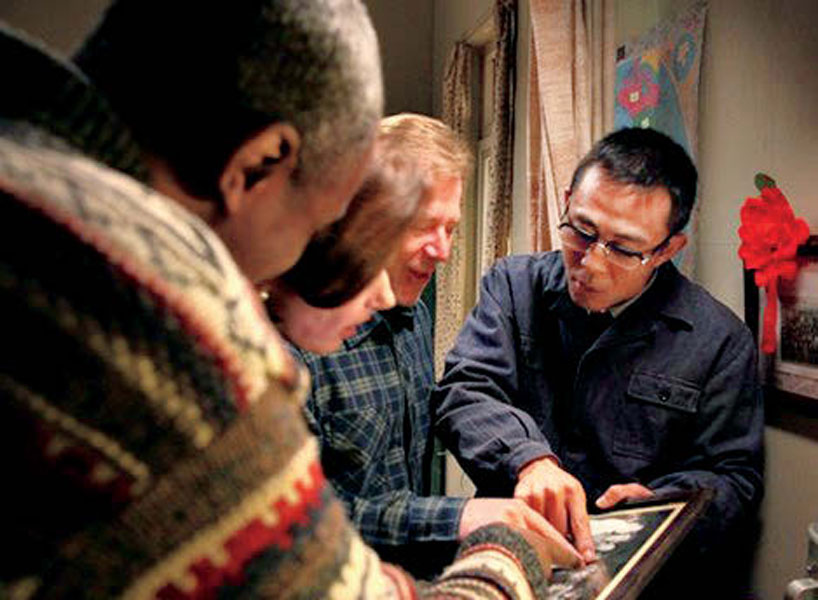
According to his superiors, Guo Mingyi has been committed to whatever is assigned to him and bears all hardships without complaining over the 30 years of working at Ansteel. To his fellow workers, Guo Mingyi is an inflexible person who never gives any thought to himself other than the job and his fellowmen. To his friends, he is a person who always thinks about what he could give to others. He is always asking himself: what more can I give!
“I did what I was supposed to do.” Guo Mingyi remains calm when people praise him. “Lei Feng has been my model ever since my childhood. To be his ‘successor’, I am supposed to do everything that benefits the society and the people,” he said.
LEI FENG: A NEVER-FADING BANNER
Guo Mingyi’s aspiration and philosophy is to be the “successor of Lei Feng”, a pursuit shared by many people in China. Everybody in China knows about Lei Feng, who was an ordinary Chinese solider born in the 1940s, had helped countless people in his short life of 22 years that turned into an epic ode of life.

Lei Feng died on his job in August, 1962. On March 5 in the second year after his passing away, Chairman Mao Zedong personally inked the inscription, “Learn from Comrade Lei Feng”. Hence, the passion to learn from Lei Feng has been sparked across China, and every March 5 is set as the commemorative day for “learning from Lei Feng”. For half a century, Lei Feng has been a moral icon and an example to learn for generations of Chinese people. People nationwide would act and perform good deeds every spring to reenact Lei Feng’s selfless practices. In the city of Fushun, Liaoning Province alone, where Lei Feng once worked, there are more than 40,000 groups for “learning from Lei Feng”. In Beijing, the capital city, young people are eager to register themselves as volunteers to “learn from Lei Feng”. In Changsha, Hunan Province, “This is what I am supposed to do” has become a catch sentence. Lei Feng’s handwritten diary has been reprinted many times and distributed in countless numbers.
Lei Feng has been a constant presence during the growth of generation upon generation of Chinese youngsters, influencing them with his dedicated spirit of serving the people and rejoicing in helping people, his professional ethics of devoting to and excelling at every job one does, his creative spirit of endeavor and self-improvement, and his entrepreneurial spirit of hard work and frugality. In the process, he has planted the seeds of optimism, kindness and bravery in people’s hearts…
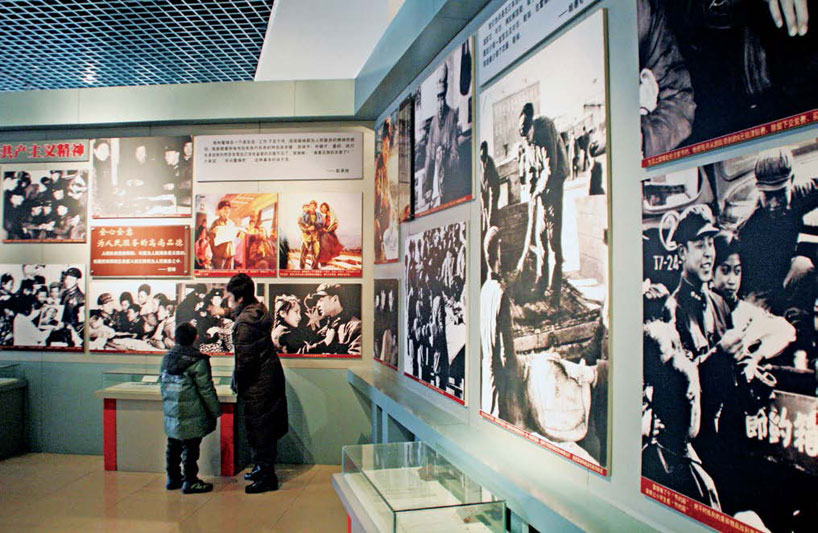
Guo Mingyi’s father is also a righteous exemplary person like Lei Feng, while his mother is a kind, selfless, yet ordinary worker. The actions of his parents taught him the principles of “appreciation, integrity, kindness and dedication” since he was young. In addition, his elementary school years coincided with the learn-from-Lei Feng campaigns across China. Guo Mingyi said the first song he learned to sing is Follow Lei Feng’s Example, and he still keeps a copy of Lei Feng’s Diary in his bookcase today. The philanthropic deeds performed by Guo Mingyi have also inspired his daughter, who bears in her mind: “Dad is like a textbook of my life that I will cherish for good and keep reading.” Guo Mingyi explained: “My father’s generation was deeply influenced by Lei Feng. Our generation has grown up amidst the inspirations from Lei Feng. It will be the same case with my daughter.”
PROFILE OF LEI FENG
- NAME: Lei Feng
- ORIGINAL NAME: Lei Zhengxing
- ETHNIC GROUP: Han
- DATE OF BIRTH: December 18, 1940
- DATE OF DEATH: August 15, 1962
- PLACE OF BIRTH: Hunan Province, China
- PLACE OF WORK: Liaoning Province, China
- REPRESENTATIVE WORKS: Lei Feng’s Diary, Yinyin, I Can Drive a Tractor Now
TO LEARN FROM LEI FENG: THE STRENGTH OF EXAMPLES
Under the influence of Guo Mingyi more people have joined volunteer teams to serve others. One of his fellow workers and a beneficiary of his good deeds, Zhang Guobin, has not only donated blood, but also joined a volunteer team to clean the streets and pick up garbage at parks. While he never offered his seat on buses to others before, he has now become the first one to stand up and offer his seat whenever he sees an elderly person get on the bus. “I just have a strong desire to help others,” said Zhang Guobin. “Previously, I felt a sea apart from Lei Feng. Now, my feeling is that you could also be a Lei Feng as long as you stretch your hand or go out of your way (to help).”
Zhang Guobin’s words resonate in the hearts of many. Learning from Lei Feng may be embodied just by any daily choice or any common act of persistence, like finding a seat for a kid or sending 20 yuan to a fellow soldier’s father, behaviors that can take us closer to the great soul.
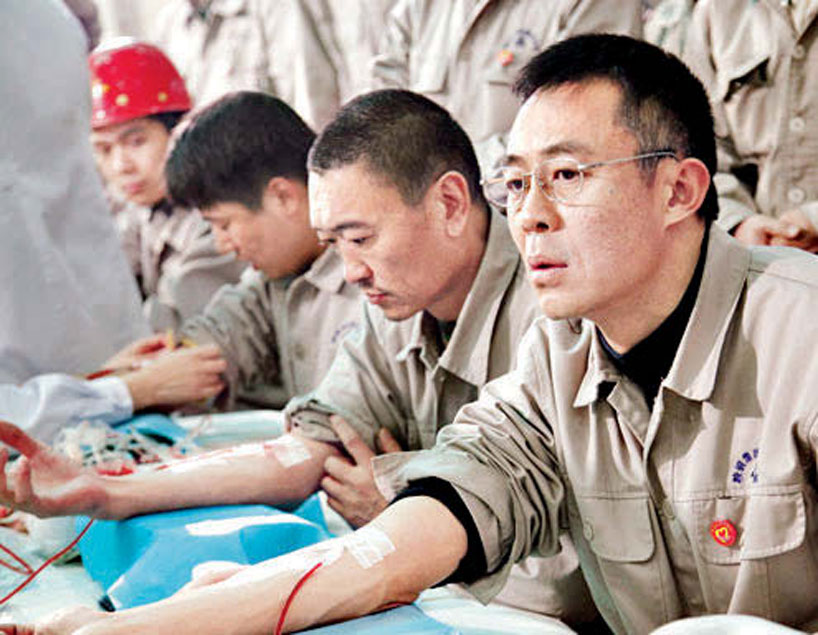
Guo Mingyi first influenced one person next to him and one family, and then a group of people and a company, and eventually a city and hundreds of millions of people. The power of Guo Mingyi originates from the power of Lei Feng, and is the inheritance of Lei Feng’s selfless practice. As a person who grew up learning from Lei Feng, Guo Mingyi believes: “Lei Feng has exerted an extremely significant influence on me. He answered a question for me, that is, what makes a ‘good person’, and how one should act to become a ‘good person’.”
In Liaoning Province, the hometown of the two moral icons Lei Feng and Guo Mingyi, the stories of Guo Mingyi were made into a movie in 2011 so that more people could get to know him through the silver screen. One of the moviegoers said, “I cried for at least 30 minutes during the 95 minutes of the movie”. Zhang Jiang, member of the CPC Standing Committee and head of the Publicity Department of Liaoning Province stated that Guo Mingyi is the representative of the billions of ordinary contemporary Chinese people, and that his devotion to his job, his willingness to serve the society, and his efforts to be the inheritor of traditional Chinese virtues are worth learning from. The exemplary effects of Guo Mingyi as a moral icon are also spread through the internet, dramas and books. Today, the number of his microblog fans has topped 6.5 million.
According to a comment by one of his “fans”, the traditional virtues and Zeitgeists embodied in Lei Feng have helped to build the spiritual skyline of our society from a social perspective; while from a personal perspective, his short life kindled a kind of “moral drive”, through which we could calibrate the course of our heart’s voyage towards a more meaningful life.
MOVING CHINA AND THE OUTSIDE WORLD
Lei Feng belongs to China and to the world as well. Lei Feng’s practices have touched China and tens of thousands of people around the world as well.
Young people wearing T-shirts featuring the head portrait of Lei Feng and helping people with joy are frequently spotted on the streets of Stockholm, Sweden. The Thai government once published Lei Feng brochures to call on the citizens to learn from him, and contribute more to the country and the society. The United States Military Academy at West Point also has the portrait of Lei Feng on a wall as an example for the soldiers. Max, a student at the School of Oriental and African Studies, University of London, thinks that although people in China and the UK may hold different views on many things, they share some of the general moral standards. Despite the fact that Lei Feng and Guo Mingyi lived in different eras, their altruistic characters are admired by all.
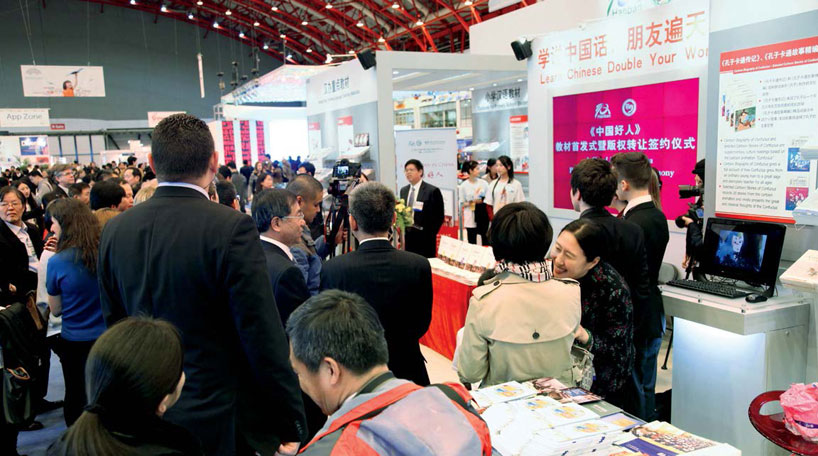
According to a young fellow who once lived abroad and is now devoted to being a volunteer for “Learning from Lei Feng” in China, Lei Feng’s practices in China do not conflict with the voluntarism in other countries, and they even overlap in some aspects. In essence, both are altruisms recognized and promoted throughout history. Every era needs its Lei Feng spirit. The reason we learn from Lei Feng and from Guo Mingyi today is that we want to become citizens with spirit of voluntarism who refuse to ignore other people’s crises.
“If you were a drop of water, have you nurtured an inch of land? If you were a ray of sunshine, have you illuminated a spot in darkness? If you were a grain of food, have you fed any useful life? If you were the smallest screw, would you always stay on the post of your life?” This is Guo Mingyi’s favorite quote from Lei Feng’s Diary.
Dedication has brought infinite strength, joy and pride to Lei Feng and Guo Mingyi, who share the view that: “The pursuits of your life will decide the course of your life. People need a kind of spirit and mental state to survive. I have chosen to do more things that I am capable of doing for my company and the society, and feel fulfilled, pleased and happy that I am trusted, relied on and needed.”
Lei Feng’s era may have passed, but his practices continue to release inspiring strength over the years and motivate more people to drop their indifference and show their support. Lei Feng’s Diary has been declared as the “manifesto that has inf luenced Chinese people for half a century” and Lei Feng is named one of the “top 10 cultural icons of China in the 20th century”. Whilst the “Learn from Lei Feng” campaign has steered the social trend for decades, the moral examples of “contemporary Lei Feng” represented by Guo Mingyi will keep emerging.
As Guo Mingyi wrote in his poem: “For hundreds of times, I have asked myself, where my life is. Let me tell you silently: love is the giving of my lifetime. Come on, my friends. Give you a piece of blue sky, to fly the loving wings of the world; this brings you happiness. Come on, my friends. Give you a piece of green land, to grow the beauty of the world; this brings you happiness.”
 Published in Confucius Institute Magazine
Published in Confucius Institute MagazineMagazine 20. Volume 3. May 2012.
View/Download the print issue in PDF






















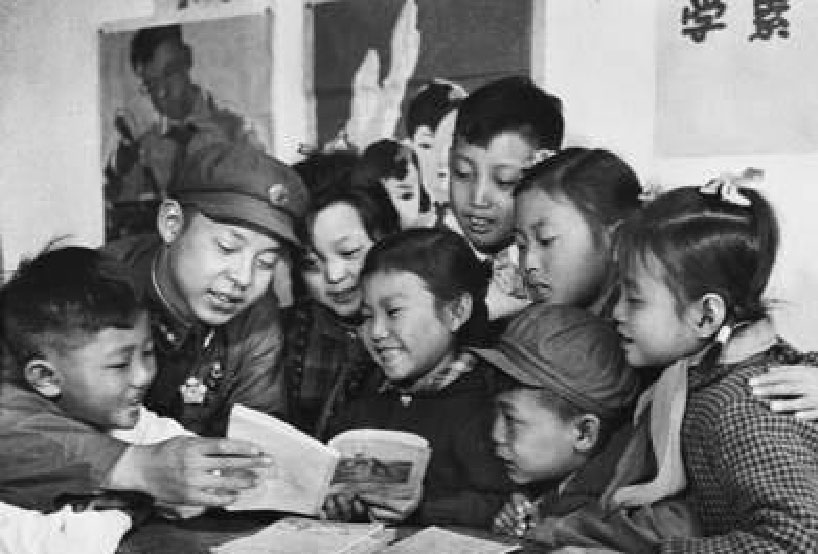
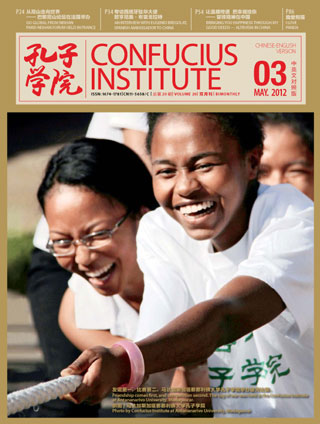
No hay comentarios:
Publicar un comentario